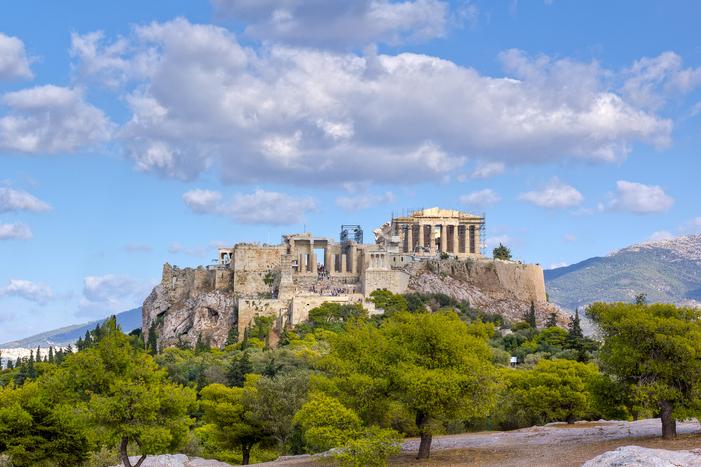Many areas of science have been facing difficulties in credibility with a sense that the scientific process is not as healthy as it could be. One argument is that this is because science has increasingly taken place in a culture of careerism, as if scientists were employees whose first duty was to progress up the career ladder, and by so doing further the reputation of the institution of which they are a part. And when enhancement of individual and institutional reputation becomes the driving motive, given the reward structures we have in place, it seems that scientific rigour goes out the window. If a researcher is interested in getting a job or being promoted in a highly competitive environment, they need to stand out on the metrics that managers have sought to maximise in the past couple of decades. And that is often best done by cutting corners.
These issues are being addressed. But this needs to happen at multiple levels. For example, the open science movement urges that data, materials, codes and hardware be publicly available, so anyone can check all aspects of a study.
But this leaves in place the dysfunctional system by which science is governed, including a top-down hierarchy that seeks to maximise metrics. These metrics are simplistic measures of research quality (such as the formal prestige of a journal) that turn out to have a negative-to-zero correlation with research rigour or even have a negative relation, such as the amount of grant income generated.
- How to transform a failing institution
- In trust, we trust: ensure transparency in university endowments
- Universities, AI and the common good
Science is likely to flourish when embedded in a culture that mirrors its own values. Science is essentially open, with (ideally) anyone able to contribute ideas, dependent only on the quality of their contribution. The community as a whole criticises ideas. This democratic decision-making process has produced many of the most impressive breakthroughs in human history. Indeed, historically, democracy and science have gone together, not absolutely but they appear to work synergistically.
How could universities be governed in a way that matched the way science itself works? Might this work better than treating scientists as workers who have to impress their manager? Might a culture of democratically criticising ideas as a way of governing a research institution facilitate a culture of democratically criticising ideas as a way to progress science? (Might, for example, the principal investigator of a large lab be more likely accept constructive criticism, and the refusal to p-hack, from a postdoc if that lab were situated in an institutional culture that encouraged respect of many voices?)
The past few decades have seen fascinating experiments in open democracy, such as the Citizens’ Assembly. These social experiments may be regarded as roughly based on how classical Athens was governed around 400BC. In classical Athens, new laws, for example, had to be ratified by a committee, whose members were randomly selected from the citizenship to spend time considering each new proposed law before it was adopted. At that time, those Greek states that adopted such a democracy economically out-performed those that adopted hierarchical, top-down control. And knowledge flourished in an unprecedented way.
Fast-forward a couple of thousand years. We are now experimenting with similar ideas to meet the challenges of politically engaging and thus educating citizens. Open democracy engages workers and allows them to bring to bear all the information they have – just as (should) happen in science; a good example is the deliberative poll, developed in 1988 by James Fishkin at Stanford University, where randomly selected groups debate and make their decision in a couple of days. Democracy can act quickly.
The governance of science could, by the use of open democracy, reflect the very decision-making process at the heart of science. Open democracy could make all information embedded in nooks and crannies of a university maximally available to decision-making, thereby making the institution transparent to itself in a way that cannot happen with pure top-down control.
Here, one of us makes suggestions as to how to implement open democracy, where a random selection of people at the institution could form working groups to make major decisions. Could a university vice-chancellor be persuaded to give up at least one decision that is important for people to a deliberative poll (or similar procedure)?
It is sometimes in a leader’s interest to hand over difficult decisions to a public body, such as the Citizens’ Assemblies considering abortion or marriage equality in Ireland. Or, in another example, if a vice-chancellor genuinely considers that a pension deal is the best one for the university – and they trust that fully informed rational discussion will lead to the same conclusion – why not decide through a deliberative poll and boost goodwill for the rest of their term? Or why not start with a decision in which they have no axe to grind but that staff care about (such as how departments or faculties are organised)? Might that not help staff morale? Might not a university that started along this path be the one to stand out from the rest?
Who knows whether this would work in running a university. But the first university to try open democratic practices, in small steps, gradually building up, may become a beacon to us all.
Zoltan Dienes is a professor in experimental psychology at the University of Sussex. Jörg Huber is a professor of health sciences in the School of Sport and Health Sciences at the University of Brighton.
If you would like advice and insight from academics and university staff delivered direct to your inbox each week, sign up for the Campus newsletter.




comment